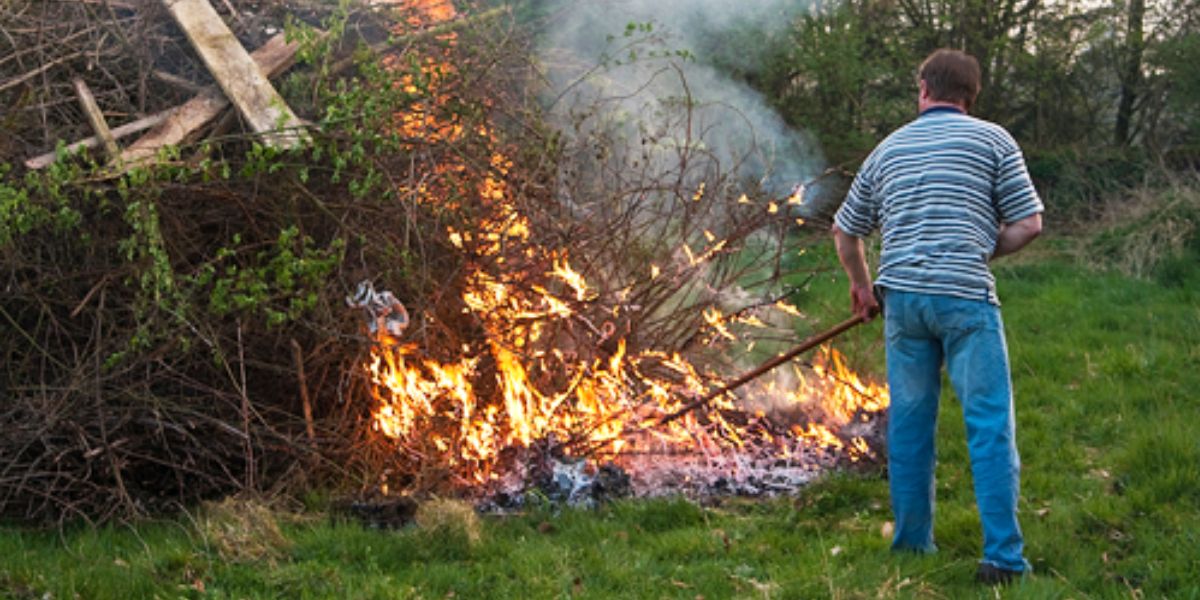A simple way to get rid of yard debris or to enjoy a fire pit in the backyard is to burn it on private land. On the other hand, Maryland has laws and regulations that restrict open burning in order to protect the environment and assure safety.
If you are thinking about starting a fire on your property in Maryland, here is some important information you should know.
What does open burning mean?
Open burning is the act of burning items outside without using an enclosure, such as a chimney or exhaust system. This includes burning yard waste, rubbish, or using outdoor fire pits.
Although certain types of open burning are allowed in Maryland, they must comply with municipal and state rules in order to minimize the risk of fire and air pollution.
What Are You Able to Burn?
In Maryland, open burning is mostly limited to natural materials, including:
- Tree limbs
- Branches
- Leaves
- Brush
However, state law prohibits the burning of the following materials:
- Household waste Plastic items Tires
- Debris from construction Chemicals
- Wood that has been treated
Burning objects that are not allowed emits dangerous pollutants and can lead to consequences, such as fines.
Tennessee Fire Regulations: Is It Legal to Burn on Your Own Property?
Is a permit required?
Whether or not you need a permission depends on the kind of burning you are doing and where you are located.
If minor open burning for yard garbage in rural regions comply with state and local standards, they may not require a permit.
However, if the fire is larger or in a more populated region, it may be necessary to obtain prior consent from municipal authorities or the Maryland Department of the Environment (MDE).
Get in touch with your local fire department or government office to find out if you need a permission.
Florida Fire Regulations: Is It Legal to Burn on Your Own Property?
Burning Restrictions
Maryland has a number of rules in place to safeguard the people and the environment:
- Time of Year: Open burning is frequently not allowed during specific times of the year, particularly during dry seasons or when there is a significant risk of fire.
- Proximity to Structures: Fires must be a safe distance away from homes, outbuildings, fences, and other combustible structures. A distance of 50 feet is usually suggested.
- Air Quality Days: When pollution levels are high, burning is not permitted on Code Orange or Red Air Quality Days.
- Fire Bans: During times of drought or high fire hazard, temporary bans may be put in place. Before burning, check local advisories.
Open Burning Safety Tips
If you intend to burn something on your property, make sure to follow these safety precautions to avoid accidents:
- Always keep an eye on the flames.
- Keep water or fire extinguisher tools close by.
- To prevent flames from spreading, only burn in calm weather.
- When you are done, make sure to put the fire out entirely.
Consequences for Burning Illegally
If you break Maryland’s open burning rules, you could face serious consequences, such as fines and being held responsible for damages. If your fire causes damage to property or people, you may potentially be subject to legal repercussions.
Other Options Besides Open Burning
Rather than burning, think about using other ways to get rid of yard waste:
- Composting yard waste
- Using local yard waste collection services
- Leaving garbage at approved locations
These options are good for the environment and remove the dangers that come with open burning.
Final Thoughts
Under some conditions, it is permissible to burn things on your property in Maryland. In order to avoid penalties and safeguard the environment, it is important to comply with state and local legislation.
Before lighting a fire, it is important to verify with local authorities, keep an eye on the weather, and observe safety procedures. This way, you can take care of your property in a responsible manner while also ensuring the safety of your community.








